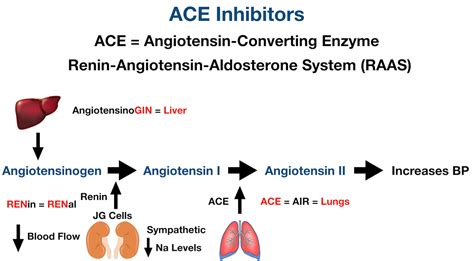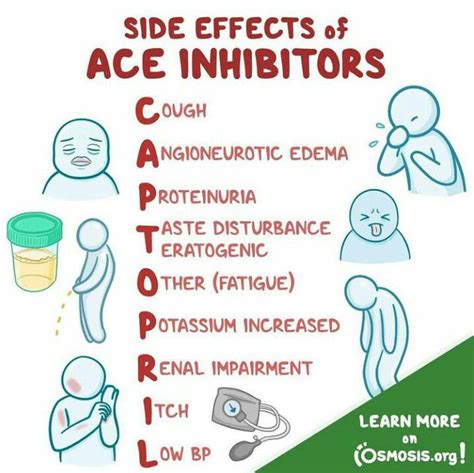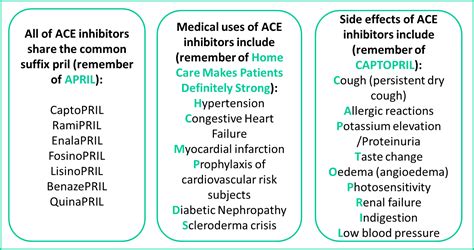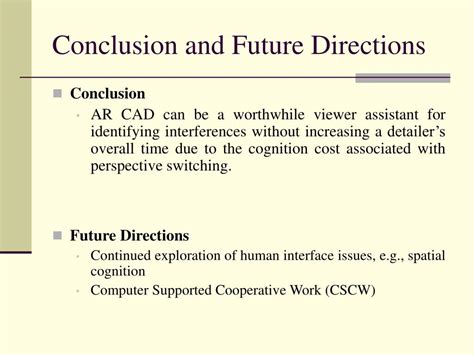Intro
Discover the potential side effects of Ace inhibitors, including dizziness, cough, and kidney issues, and learn how to manage risks and interactions with other medications, such as beta blockers and diuretics.
The importance of understanding the side effects of Ace inhibitors cannot be overstated. These medications, commonly used to treat high blood pressure and heart failure, have been a cornerstone of cardiovascular therapy for decades. However, like all medications, they come with potential side effects that can range from mild to severe. It's crucial for patients and healthcare providers to be aware of these side effects to ensure safe and effective treatment. In this article, we will delve into the world of Ace inhibitors, exploring their benefits, working mechanisms, and most importantly, their side effects.
Ace inhibitors work by blocking the conversion of angiotensin I to angiotensin II, a potent vasoconstrictor. This action results in the dilation of blood vessels, which in turn lowers blood pressure and reduces the strain on the heart. While this mechanism is beneficial for patients with hypertension and heart failure, it can also lead to several side effects. Understanding these side effects is essential for managing patient care and improving treatment outcomes.
The use of Ace inhibitors has become widespread due to their effectiveness in managing cardiovascular diseases. However, the increasing prevalence of these conditions, coupled with the aging population, means that more people are being prescribed Ace inhibitors. This trend underscores the need for comprehensive information on the side effects associated with these medications. By educating patients and healthcare providers about the potential risks, we can work towards minimizing adverse reactions and optimizing treatment plans.
Common Side Effects Of Ace Inhibitors

Ace inhibitors are generally well-tolerated, but like all medications, they can cause side effects. The most common side effects include cough, dizziness, and headache. These side effects are usually mild and temporary, resolving on their own or with adjustments to the medication regimen. However, in some cases, they can be severe and require medical attention. It's essential to monitor patients for these side effects and adjust treatment plans accordingly.
Less Common Side Effects
Less common side effects of Ace inhibitors include fatigue, nausea, and diarrhea. These side effects can significantly impact a patient's quality of life, making it crucial to address them promptly. In some cases, these side effects may be a sign of an underlying issue, such as kidney problems or hyperkalemia, which requires immediate medical attention.Severe Side Effects Of Ace Inhibitors

While rare, severe side effects can occur with Ace inhibitors. These include angioedema, a condition characterized by swelling of the face, lips, tongue, or throat, and anaphylaxis, a severe allergic reaction. These side effects are medical emergencies that require immediate attention. Patients experiencing any symptoms of angioedema or anaphylaxis should seek medical help right away.
Managing Side Effects
Managing side effects is crucial for ensuring patient compliance and treatment success. This can involve adjusting the medication dosage, switching to a different Ace inhibitor, or adding other medications to mitigate side effects. For example, patients experiencing a persistent cough may be switched to a different class of medications, such as angiotensin II receptor blockers (ARBs).Benefits Of Ace Inhibitors

Despite the potential side effects, Ace inhibitors offer numerous benefits, making them a valuable treatment option for patients with cardiovascular diseases. These benefits include:
- Reduced blood pressure: Ace inhibitors effectively lower blood pressure, reducing the risk of heart attack, stroke, and kidney disease.
- Improved heart function: By reducing the strain on the heart, Ace inhibitors can improve heart function and reduce the risk of heart failure.
- Kidney protection: Ace inhibitors have been shown to slow the progression of kidney disease, making them an essential treatment option for patients with diabetic nephropathy.
Working Mechanism
Understanding the working mechanism of Ace inhibitors is essential for appreciating their benefits and side effects. These medications work by blocking the conversion of angiotensin I to angiotensin II, a potent vasoconstrictor. This action results in the dilation of blood vessels, which in turn lowers blood pressure and reduces the strain on the heart.Steps To Minimize Side Effects

To minimize side effects, patients should follow these steps:
- Take medications as directed: Patients should take their medications exactly as directed, without missing doses or taking extra doses.
- Monitor blood pressure: Regular blood pressure monitoring can help identify potential side effects, such as hypotension.
- Report side effects: Patients should report any side effects to their healthcare provider, who can adjust the treatment plan accordingly.
- Stay hydrated: Patients should stay hydrated, especially when taking diuretics, to minimize the risk of dehydration and electrolyte imbalances.
Practical Examples
Practical examples can help illustrate the importance of minimizing side effects. For instance, a patient experiencing a persistent cough may be switched to a different Ace inhibitor or prescribed a cough suppressant. Similarly, a patient experiencing dizziness may be advised to rise slowly from a sitting or lying position to minimize the risk of falls.Statistical Data

Statistical data highlights the importance of Ace inhibitors in managing cardiovascular diseases. According to the American Heart Association, Ace inhibitors are used by over 40 million patients worldwide, making them one of the most commonly prescribed medications. Additionally, studies have shown that Ace inhibitors can reduce the risk of heart attack and stroke by up to 20% and 30%, respectively.
SEO Optimization
To ensure SEO optimization, it's essential to use relevant keywords, such as "Ace inhibitors," "side effects," and "cardiovascular diseases." Additionally, using synonyms and related phrases, such as "angiotensin-converting enzyme inhibitors" and "heart failure," can help improve search engine rankings.Conclusion And Future Directions

In conclusion, Ace inhibitors are a valuable treatment option for patients with cardiovascular diseases. While they can cause side effects, these can be managed with proper monitoring and adjustments to the treatment plan. As research continues to evolve, we can expect to see new developments in the field of Ace inhibitors, including the development of new medications and treatment strategies.
We invite readers to share their experiences with Ace inhibitors, including any side effects they may have experienced. By sharing this information, we can work towards creating a more comprehensive understanding of these medications and improving treatment outcomes for patients worldwide.
What are the most common side effects of Ace inhibitors?
+The most common side effects of Ace inhibitors include cough, dizziness, and headache.
Can Ace inhibitors cause severe side effects?
+Yes, Ace inhibitors can cause severe side effects, including angioedema and anaphylaxis, which are medical emergencies that require immediate attention.
How can I minimize the side effects of Ace inhibitors?
+To minimize side effects, patients should take their medications as directed, monitor their blood pressure, report side effects to their healthcare provider, and stay hydrated.
